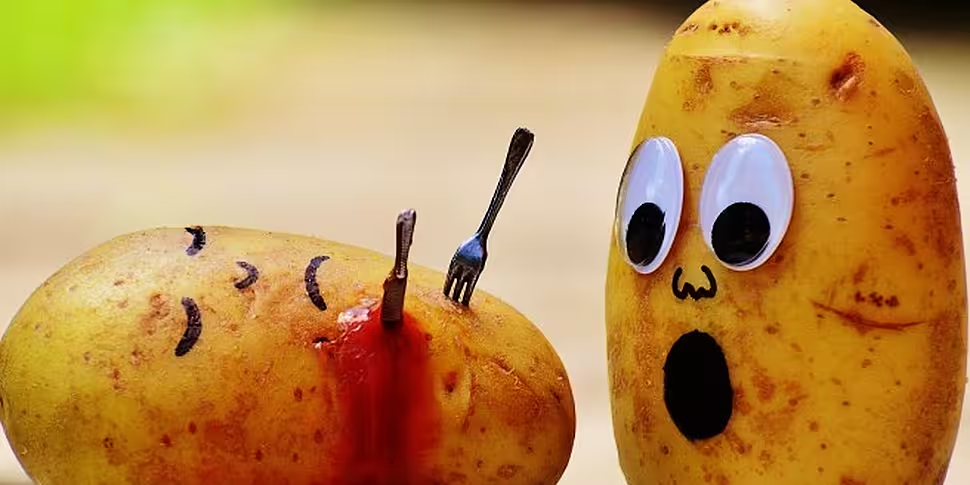Worth an estimated €46.5 billion annually, food fraud dwarfs the heroin trade (€27bn) and illegal firearms game (€7.6bn) put together.
From horse meat labelled and sold as beef to slaughterhouse waste and sewage being used in cooking oil, incidents of chicanery in the industry are only on the increase globally.
Queen’s University Belfast announced this week that it would be at the forefront of tackling widespread underhanded practices, as its Institute for Global Food Security was selected to lead one of the world’s largest food safety projects across Europe and China.
The European Horizon 2020 programme and Chinese Ministry of Science and Technology (MOST) programme have awarded €10 million towards the EU-China partnership, which will involve key players in the food industry, research organisations and governments.

EU-China-Safe is aiming to reduce food fraud and improve food safety through focusing on improving food legislation, food inspection and increasing access to information across both continents.
Food expert Ross Golden-Bannon, however, isn't convinced.
Speaking to Newstalk Breakfast, the chair-elect of Irish Food Writers' Guild said that while he welcomes the sentiment, he has concerns over the effect:
"The reality about this kind of proposal for new kinds of labelling is that it suits very big agribusiness.
"It does not suit small businesses producing fresh food. The big business will cry crocodile tears over this. The reality is they know it's a barrier to entry for small food businesses."

Calling labelling a "contentious and difficult issue", he argued that current rules and regulations aren't working:
"The problem is that people break the law. So we need a [different] system...
"The further and further you move away from where you're growing and consuming your food, the more risks there are for health, and for fraud to take place.
"Which is why we have so many layers of labelling on our food. The problem with the labelling on our food at the moment is that even that isn't true. Even that is false labelling."
"'Trans fat' is the trendy word at the moment but in fact there's a very, very long list of other things that don't appear on your label," he continued.
"You've maybe noticed in the last number of years the E numbers seem to have disappeared off the labels of your food...
"What's happened is agribusiness and very big international food businesses have worked very hard at a European and international level to lobby and have a lot of these additives reclassified as part of the process.
"Which means that they don't have to appear on the label. The classic example would be the Chorleywood method of making bread.
"Most high-production bread is made through this method. It uses various enzymes in the process and because they've got it reclassified, these enzymes don't appear on the label."

These enzymes, Golden-Bannon joked, meant that the bread would last "until the post-apocalypse" but would probably not do much to help your chances of survival.
He made the case that much of the official, legally-sanctioned information you see is out-of-date at the very least:
"The nutritional content stated on the label is at the time of harvest.
"So as soon as you harvest something, the nutritional depth begins to collapse. If it's been harvested 2,000 miles away and shipped over a two-week period, the nutritional content in some cases has fallen by 90%.
"That's standard. Pick up any food in a supermarket... or any shop, and the nutritional content will not be correct.
"That's on top of the fact that our soils have become so depleted since the 1950s that the key nutritional content of most of our fruit and vegetables has fallen in the last 50 years as well."

So can the average Irish shopper do anything to protect themselves?
"Well they can if they are buying fresh food, they're cooking from scratch and they're buying locally-produced, Irish food.
"In the last few years, everyone was thinking that was the bourgeoise mantra, but actually it's a health message. It's a fraud message. It's an environmental message.
"We're paying for our food several times over, through the environment, in the shop, through our health.
"We need to just start paying for it the once."

Golden-Bannon also called for Irish producers to take a more organic approach.
"Put it this way, organic is closer to where we need to be going in our food production in Ireland," he concluded.
"We have a very singular view of agrifood business in Ireland: it's about mass production, mass exports, a race to the bottom in price...
"That's fine to be mass-producing – we make enough food to feed something like 50 million people or something crazy like that. But we need a new pillar.
"We need to be working up the value chain on international exports and the way to do that is through our green island, organic food. The demand for organic food globally is growing.
"Yeah, sure, it's a luxury good. But we want to be tapping into the middle-classes in India and China and not racing to the bottom and competing with the megafarms of Canada."









